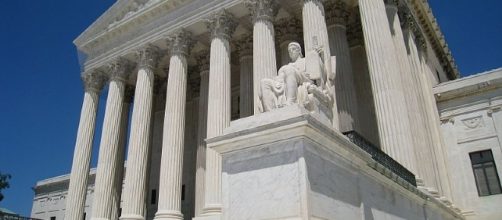During the final day of its current session, the Supreme Court provided President Donald Trump a clear victory by partly reinstating a travel ban from majority Muslim countries that are centers of terrorism. The Court promised to rule on the full ban in the new session that starts in the fall. But since the travel ban was meant to be temporary pending a system of deep vetting of travelers from the countries in question, the ruling may be moot by the time it is made.
What the Supreme Court did
The Court will allow the ban to stand except for individuals who have family relationships with residents in the United States and are traveling to the country for family visits, to work, or to go to school.
Other than those exemptions, the 90-day ban on travel from Iran, Libya, Somalia, Sudan, Syria, and Yemen will be reinstated within 72 hours as well as a 120-day ban on refugees.
The Supreme Court rejected the arguments of lower courts that the ban was based on religious animus, despite certain statements that President Donald Trump made during the 2016 campaign. The reasoning of the lower courts set up a strange situation in which Trump’s ban would have been considered legal had it been made by anyone but him. The court stated that national security considerations overrode the inconvenience that travelers from the countries in question might experience.
Trump claims victory
President Donald Trump claimed victory, saying that national security had won out over his political opponents in the end.
The matter of the travel ban had plagued his presidency from the beginning, with Trump’s opponents claiming that he was motivated by bigotry and lower courts agreeing with that sentiment. Trump and his allies maintained that his powers as chief executive were being usurped for partisan and even personal political reasons. He noted that Iran, as a state sponsor of terrorism, was regarded as a special case that required the travel ban. The wrangle provided an unneeded distraction from Trump’s desire to enact his agenda.
What happens now?
Now the Trump administration can impose the travel ban and set about the task of setting up a deep vetting process. The review process will be completed on October 2, ironically the first day the Supreme Court Justices can hear arguments on the case. The president intends to bask in a court victory that will likely vindicate him and confirm the legality of his policy.


